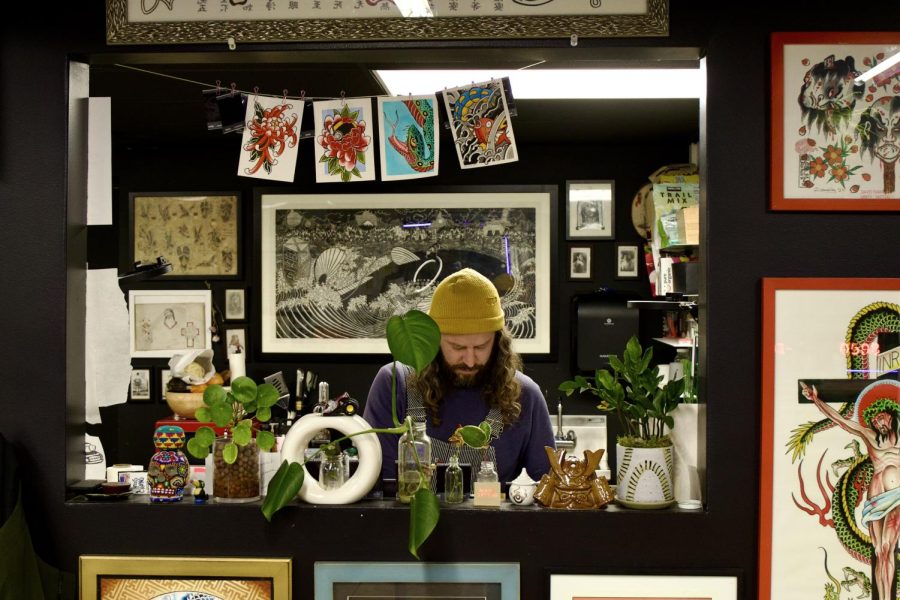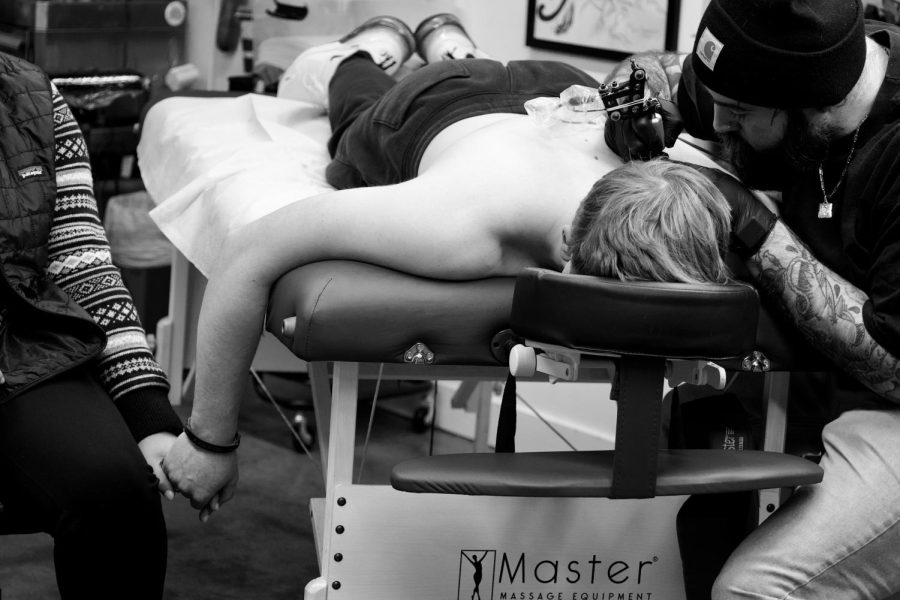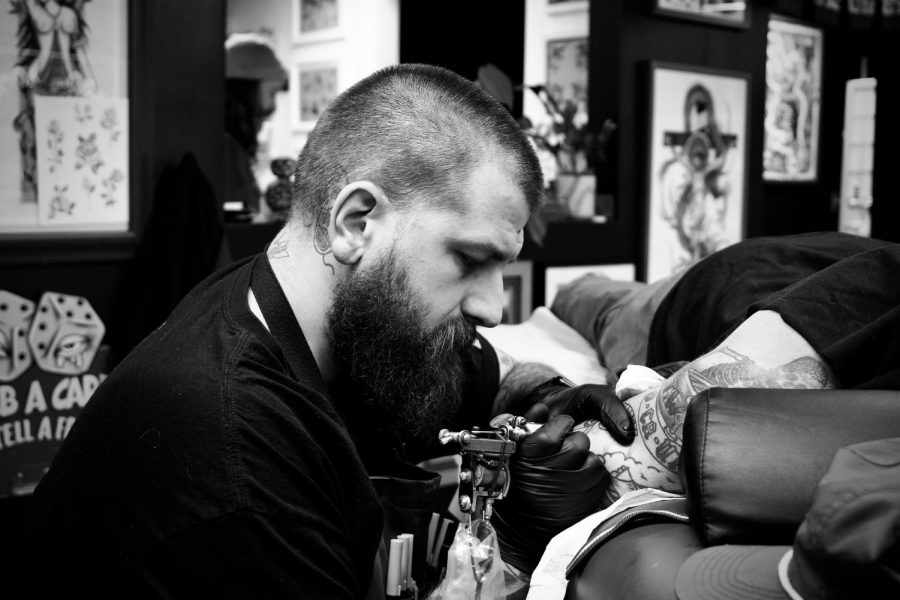Mendenhall: Get Over the Stigma of Body Modifications
Look Look Tattoo in Salt Lake City on Saturday Jan. 14, 2023. (Photo by Sophie Felici | The Daily Utah Chronicle)
January 18, 2023
Body modifications include, but are not limited to, tattoos, piercings and plastic surgery. Many people turn to them for reasons of self-esteem, trauma response and overall enjoyment, just to name a few. Here in Utah, plastic surgery has become a very widespread, culturally accepted modification. Unfortunately, tattoos and piercings don’t warrant the same response and are still generally viewed as negative, particularly in religious settings. We should recognize body modifications like tattoos and piercings as self-empowering and validating, rather than subject them to negative religious criticism.

What are Body Modifications?
Today, it seems like the possibilities are endless, in terms of body modification. We all know the more popular kinds of body modifications, like plastic or cosmetic surgery, tattoos, piercings and implants. However, other kinds of modifications appear to many as much more extreme options. These include tongue splitting, eyeball tattoos, microdermals, branding and teeth filing.
Individuals may choose to undergo body modifications for a number of reasons. Sometimes, it’s for a more aesthetic or self-esteem related reason. Other times, it could serve for self-expression and empowerment over the modification process. Regardless of why people choose their modifications, they have every right to decide how to best express themselves.
Representation of Mental Health
BMC Psychology published a study in 2022 about the correlation of mental health and tattoos and piercings. Researchers found that “tattoos and piercings were more common among individuals who reported childhood abuse and neglect.” Along the recovery journey for many mental health disorders like anxiety, depression and bipolar disorder, people can intertwine healing with tattoos and piercings. They often serve as a sort of physical pain we can control, leading to a sense of safety and empowerment.
After struggling with something for so long and finally overcoming it, it can feel meaningful to commemorate that success. Many people I’ve met on campus and during tattoo sessions have spoken openly about the meanings of their tattoos, no matter how difficult the situation. Making space for emotional vulnerability and acknowledgement for the dark times in your life is an important step in any recovery process.
Tattoos dedicated to mental health can also serve as a personal reminder of accomplishments and big steppingstones during a hard part of life. I personally have a few tattoos that stand as reminders of the trials I’ve endured. I’ve been criticized by those who both do and don’t know the meaning of them but have ultimately had to learn to let it go.
Tattooed in Utah? That’s New
Living in Utah, I’ve had to come to terms with the snide looks and remarks some people make when they see my many piercings and tattoos. When I walk out of a tattoo appointment feeling on top of the world about my new ink, it sucks to be brought down by pointed glares or thinly veiled comments. I’ve gotten a few passive aggressive remarks from my own family as well, which used to really affect me. It doesn’t bother me anymore, but I still have to ask — what’s the real reason for all of the judgment? Just because you wouldn’t choose to have the exact same tattoo that I have on my body, or even agree with tattoos in general, it doesn’t warrant criticism.

With the LDS church recently updating their “For the Strength of Youth” pamphlet, it’s notable that the once-specific guidelines on tattoos and piercings have been struck out. Instead, the new verbiage includes, “The Lord’s standard is for you to honor the sacredness of your body, even when that means being different from the world. Let this truth and the Spirit be your guide as you make decisions—especially decisions that have lasting effects on your body.”
We’ve started to progress into a modern-day world where bodily autonomy is becoming less dictated by religion. However, it’s still not enough if the principles have changed, but the judgment remains. I was raised as a member of the LDS church and got told from a young age that tattoos were bad and I could only have one pair of earrings total. I was terrified to ask permission to get a second set. We shouldn’t try to provoke fear-based responses to make people stay in line with arbitrary religious verdicts. It only leads to a lot of cruel and unnecessary holier-than-thou judgment.
Jesus said love everyone, so can we do away with the mindless judging of others? What people do when it comes to self-expression and their bodies is not your business. I’m sick and tired of people having their roads to recovery from mental illness impeded with harsh criticism and disdain. I won’t judge you for getting liposuction and Botox if you don’t judge me for having a septum piercing, Karen.










ICook • Jan 24, 2023 at 8:39 am
You mentioned in your opening paragraph talking about religious criticisms, but you only talk about one religion the whole time. It would have been really interesting to see other religious views on this subject.
OConnor • Jan 22, 2023 at 10:06 am
Good article! I don’t personally have the confidence to get a tattoo, but I’m often impressed by the creative and beautiful works people have done.